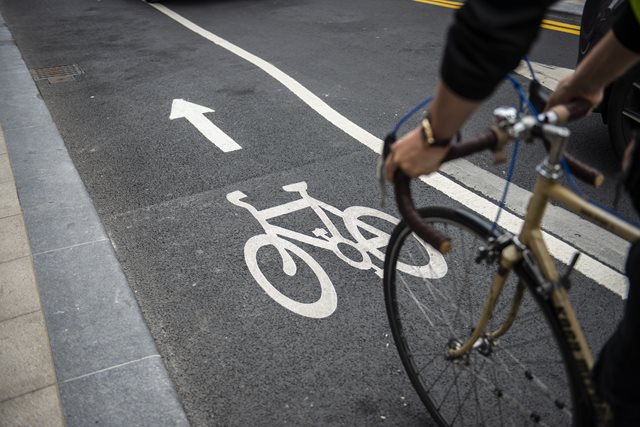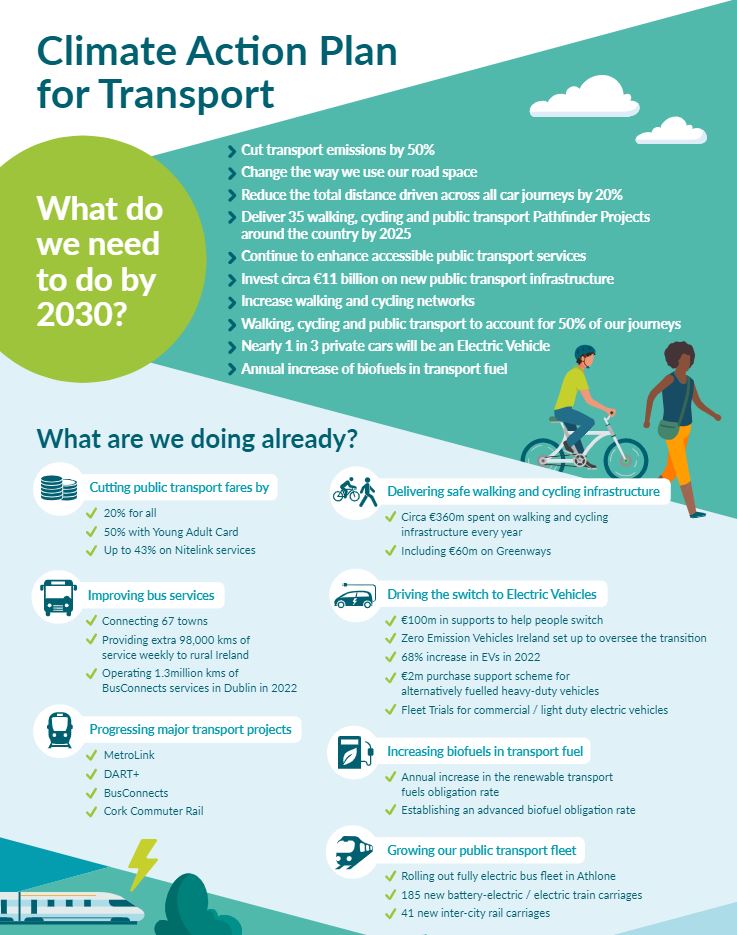
Date: 16 Jan 2023
Plans to transform how we travel over the coming 7 years
Minister for Transport, the Environment, Climate and Communications Eamon Ryan has today launched the Climate Action Plan 2023, which sets out the pathway towards achieving a 51% reduction in carbon emissions by 2030.
As the first statutory Climate Action Plan since the adoption of the carbon budget programme and sectoral emission ceilings, this year’s update details the legally binding targets needed to meet the accelerated level of change required. The Transport Chapter of CAP23 is ambitious. Under sectoral emission targets agreed last July, the transport sector must reduce its emissions by 50% by 2030.
CAP23 outlines the steps which will enable a radical, equitable transformation in how we travel over the next seven years as we move towards the 50% reduction in carbon emission by 2030, and a fully decarbonised transport sector by 2050.
The need to move swiftly in transport is even more pressing given that following COVID-19 transport emissions globally and here in Ireland, are increasing. In 2021, transport emissions rose by over 6% and indications are that this trend will continue into 2022. The transport sector represents about 18% of Ireland’s carbon emissions nationally with road transport and private car usage carrying the most significant carbon footprint.
Against this background, the focus in CAP23 is on the need for consistent, coordinated and systemic action by Government and Local Authorities, with a new lens brought to the vital issue of our spatial and land-use planning, as a fundamental step to ensuring decarbonisation of the sector. How we plan our road space and particularly town centres influences how we choose to get around. The Transport Chapter also takes into account many of the key observations of the OECD in its report ‘Redesigning Ireland’s Transport System for Net Zero.’
Key transport actions have now been expanded and grouped under a new ‘Avoid-Shift-Improve’ framework.
This means:
- Developing services, communities, and infrastructure in such a manner as to AVOID the need to travel as much as we do today
- Improving the relative attractiveness of sustainable travel modes such as Public Transport, Cycling and Walking, to SHIFT away from car use; this will facilitate increased use of lower-carbon modes and reduce the percentage of total journeys that are made by private car (modal share) from over to 70% (today) to just over 50% in 2030; and
- Complement these measures by increasing the proportion of EVs in our car fleet to 30% by 2030, which will IMPROVE the efficiency of the national car fleet; electrification of the freight and public transport sector will also be key

The updated transport chapter identifies 17 high-impact measures and ongoing work-programmes, from improved land-use planning and spatial integration, enhancements across public transport, active travel and EV charging infrastructure to developing strategies and communications campaigns that will help drive behavioural change away from traditional fossil fuelled private car journeys to healthier, more sustainable mobility options.
The Climate Action Plan will also ask the public to consider their own choices and to choose the sustainable mobility option first. It will seek over time to make these options accessible, attractive and affordable and in the case of town and city planning, move away from car to people centric design.